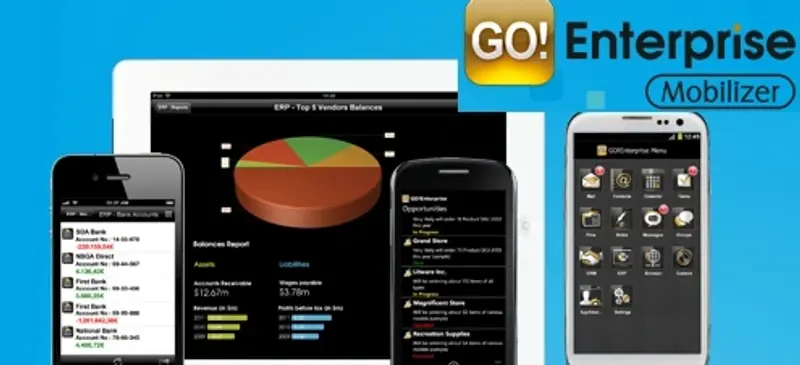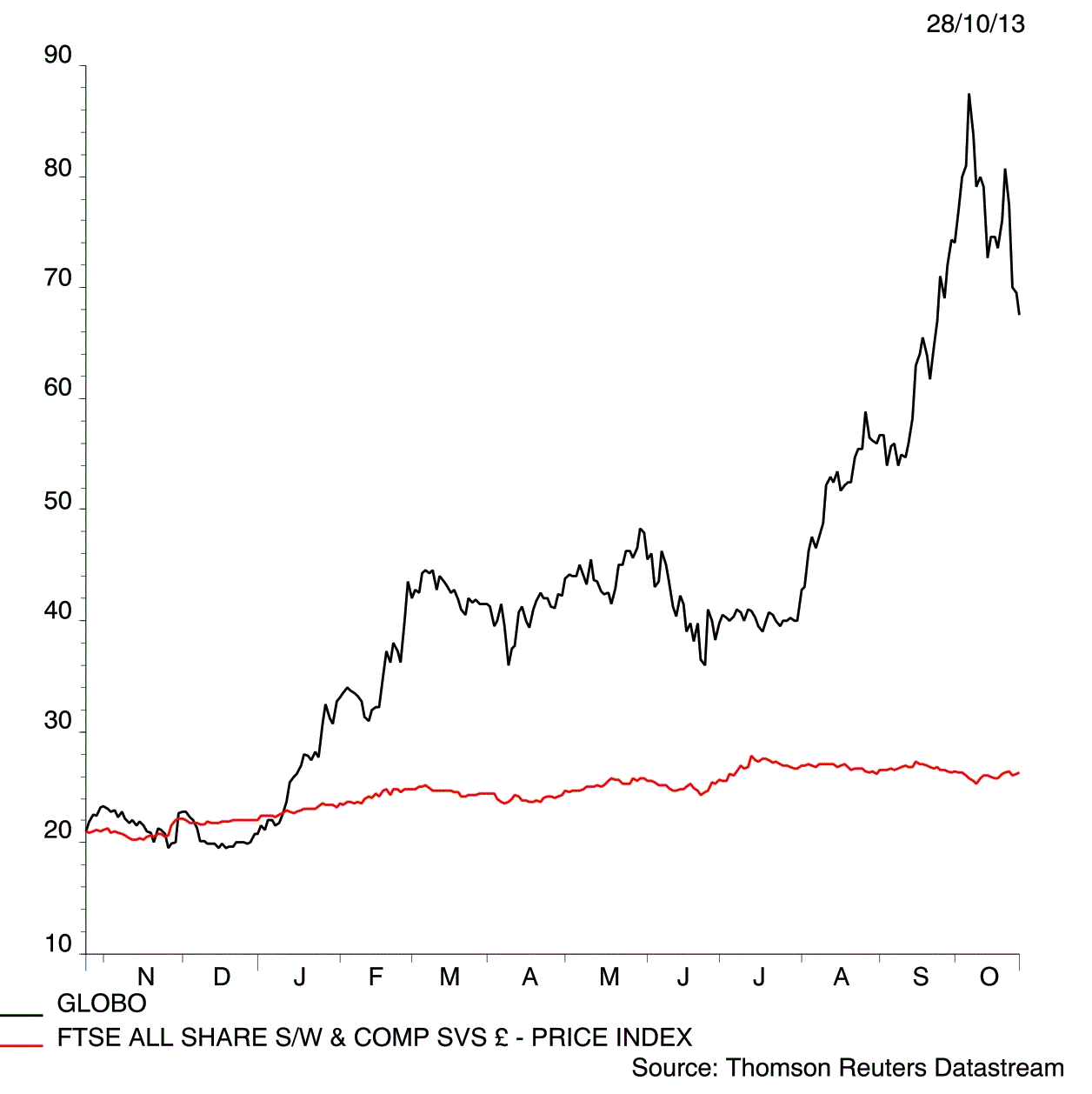
Consumer and business mobile platform developer Globo (GBO:AIM) is under siege. Since hitting a record 87.5p earlier this month the shares have collapsed more than 30% to 59.75p with bulletin boards throbbing with rumours of a bear raider campaign launched by a handful of well-known retail investors. Their concerns lay in Globo's apparent failure to turn fast-growing revenues and profits into cash. 'Revenue is vanity, profits sanity, cash is reality,' as the stock market phrase goes.
Globo has been a long-run favourite of Shares, it's one of our running Plays having flagged the stock at 21p back in January. I raised cashflow concerns with founder and chief executive Costis Papadimitrakopoulos in conversation a few weeks back, and while his explanation reassured me (and I Tweeted as much, @SharesMagSteve), that information appears to have failed to extend right across the retail investor scene. The company has reacted by promising more detail on its cashflow cycle, with an announcement likely on Thursday (31 Oct). Perhaps that will do the trick, perhaps not.
For me, the key issue is to understand the huge opportunity before Globo that underpins its rapid growth to date, and how that impacts cash. While its consumer side (CitronGO!) is susceptible to notoriously slow-paying mobile network operators (MNOs), the bigger problem in the short-term is GO!Enterprise, its business-facing platform. Licenses are generally sold through third-party resellers (IBM, Ingram Micro, Computerlinks, among others), with contracted payments typically received inside 90 days. Globo's cloud-based versions deliver cash faster, about 45 days on average.
That's not an issue in and of itself. But development spend is. Remember, GO!Enterprise is still quite new. It's only been selling for about 18-months and was launched in the key US market earlier this year. As with any software platform, Globo can scarcely afford to stand still, and it continues to commit R&D investment to make it a better, more compelling sales proposition. This involves capitalising much of that spend, effectively bypassing the P&L, before they are amortised over three years. While this is within the remit of IFRS accounting standards it has led some sceptics to claim Globo's profits are being inflated.
Historically, the level of capitalized costs has far outweighed amortisation. It could have redressed this imbalance by slowing the pace of growth, but that would be the wrong move given the opportunity to leverage the bring-your-own-device (BYOD) theme, potentially missing any first mover advantages.
As revenues have started to build for GO!Enterprise the amount of costs capitalized/amortisation imbalance has already started to even out. The difference between amortization and capitalization fell from ?6.3 million in 2011 to ?3.4 million last year. It was ?1.7 million in the first half of this year implying that Globo has found a more comfortable balance between amortisation and capitalization. Thursday's announcement should clarify these details and set the bear raiders into retreat. That would bring stability to the Globo share price and, could potentially, even turn some of the sceptics around, creating new buyers.





